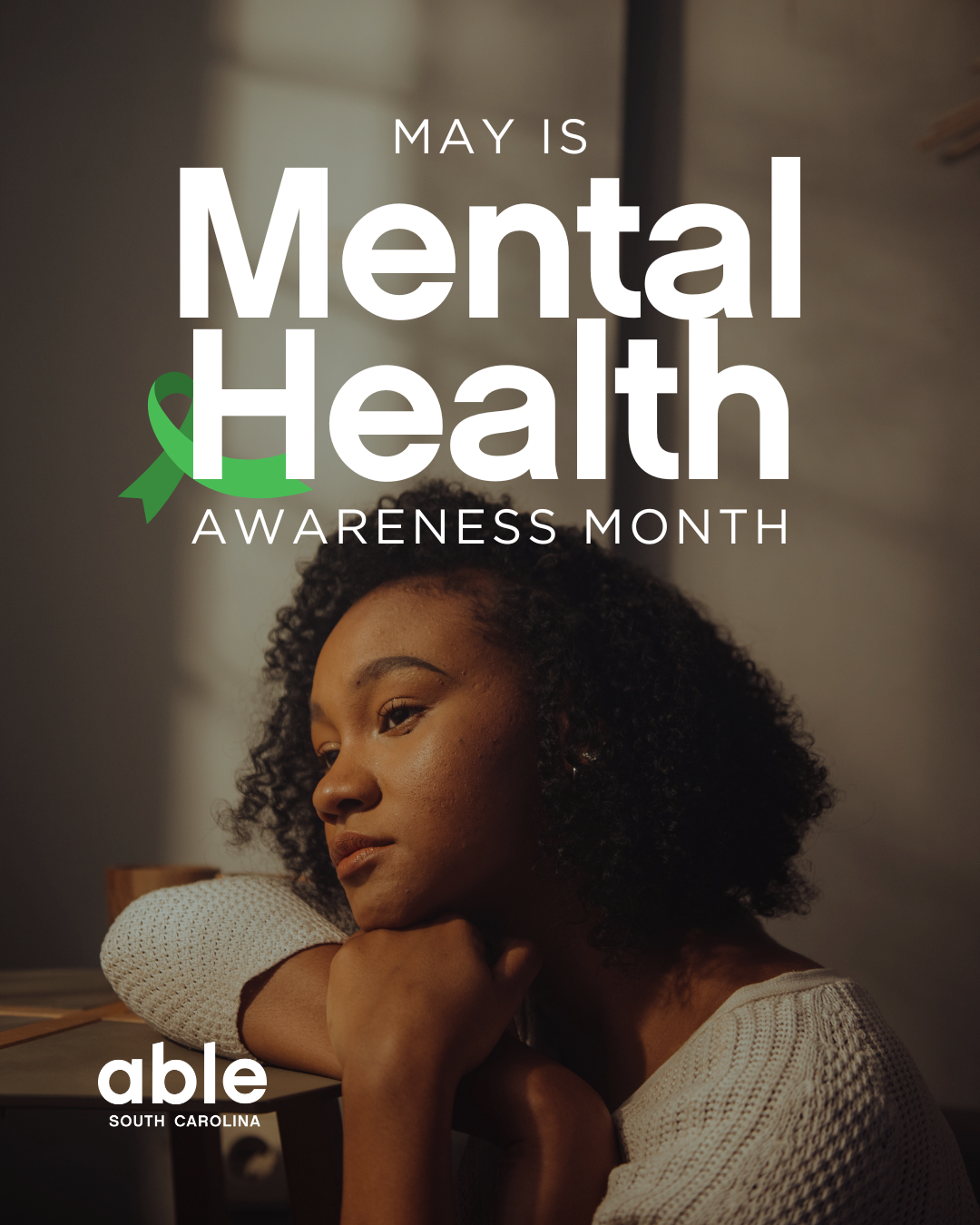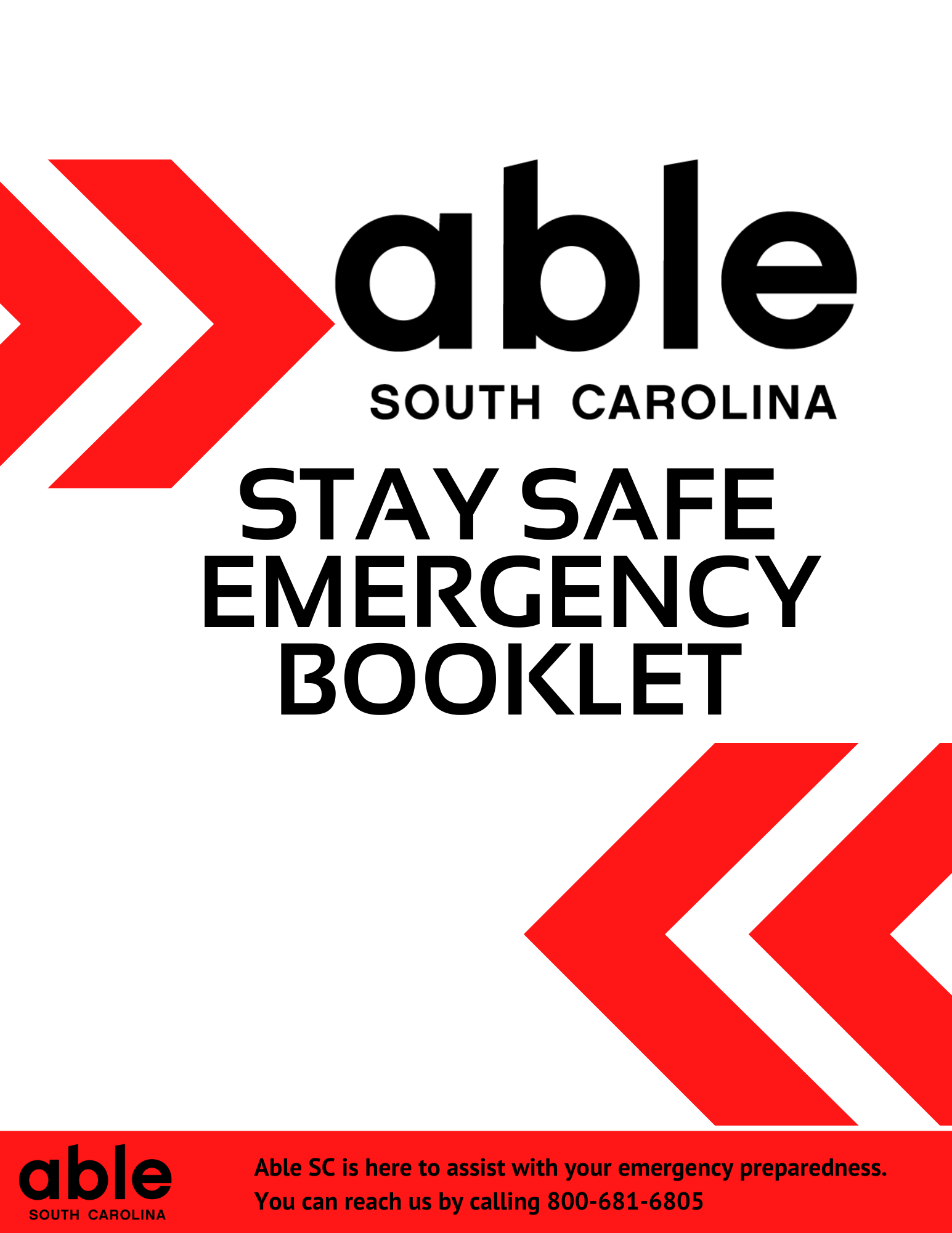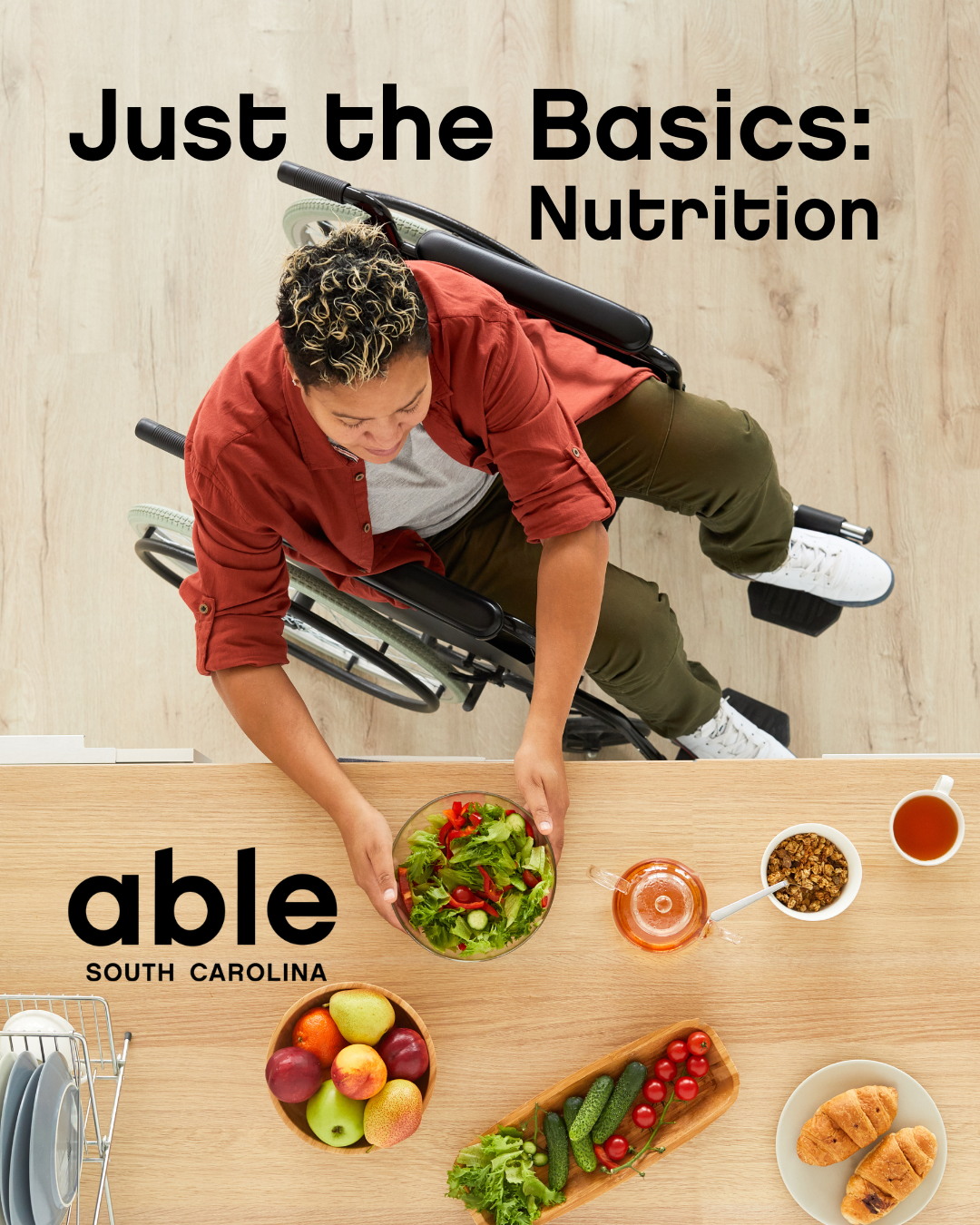Public Health and Emergency Response Monthly Newsletter |
| |  | Health Programs at Able SC: Celebrating 4 Years of ImpactThis April, we wrapped up one of the grant-funded projects that helped launch the Community Health Department at Able South Carolina. Thanks to this support, we’ve been able to build a strong team, create educational content and resources, and lead trainings that improve the health of people with disabilities across our state. Community Health Initiatives At Able SC, we believe disability must be included in every part of community health. Over the past four years, we’ve formed partnerships across South Carolina and the nation to make sure the voices and needs of people with disabilities are included in health programs, services, and decisions. We also provide direct support and programs to help people with disabilities access the information, tools, and care they need to live healthy, independent lives. We are grateful for the opportunity to develop health-focused projects and programs that have directly benefitted our community. We will continue equip our community with the tools needed to make informed health choices, educate the community on how best to serve disabled populations, and advocate for access and inclusion in health spaces! |
|
|
|
Mental Health Awareness MonthMay is Mental Health Awareness Month, which is about understanding mental health and breaking down the barriers and stigma that surround it. We all live stressful lives, and it's important to know that it's okay to not feel okay sometimes. Looking after our mental health is just as important as looking after our physical health. Recently, the Substance Abuse and Mental Health Services Administration (SAMHSA) shared an article with helpful information and resources to support mental well-being. They talked about different ways to take care of our mental health, like: |
|
|
| This Mental Health Awareness Month prioritize your mental health and support those around you. Remember, it's okay not to feel okay, and there's help available if you need it. Together, we can build a kinder, more understanding world where our mental health is given the attention and support it deserves. Helpful Mental Health Resources: National Alliance on Mental Illness (NAMI): NAMI provides support, education, and advocacy for individuals and families affected by mental illness. They offer various resources including support groups, helplines, and educational materials.
National Institute of Mental Health (NIMH): NIMH is a leading research organization that provides information on mental health disorders, treatment options, and ongoing clinical trials. Their website offers valuable resources for individuals seeking information on mental health.
Mental Health America (MHA): MHA is a community-based nonprofit organization dedicated to addressing the needs of those living with mental illness and promoting mental wellness. They offer screening tools, educational resources, and advocacy initiatives.
988 is a three-digit telephone number in the United States chosen as the National Suicide Prevention Lifeline. By dialing 988, individuals in crisis can be connected to trained counselors who can provide support, resources, and help. This number aims to make it easier for people experiencing mental health crises to access help quickly and easily.
South Carolina Department of Mental Health is the state agency responsible for providing mental health services, substance abuse treatment, and support services to individuals and families in South Carolina. SCDMH offers a wide range of programs and services aimed at promoting mental wellness, preventing mental illness, and providing treatment and support for those living with mental health conditions or substance use disorders. DMH's Mobile Crisis Team, statewide, toll-free, 24/7. Call 833-364-2274.
|
| | How People with Disabilities Can Become More Disaster Resilient Everyone has different needs & supports, so planning for disasters is very important. If you have a disability or are a caregiver, think about daily needs and what might require extra attention in an emergency. Here are eight steps you can take to be prepared: |
|
|
| Create a Support Network
Keep a list of people who can help, like doctors, social workers, and family. Store it in a waterproof bag or on your phone.
Talk to Your Healthcare Provider
Plan how to get medication or assistive technology if your usual pharmacy is unavailable. Ask about emergency refills and caregiver pickup options.
Plan for Power Outages
Have backup power sources for medical devices. Find out if utility companies offer priority restoration for medical needs.
Arrange Transportation
Identify accessible transportation options before a disaster. Some services require advance notice for evacuation help.
Stay Informed
Sign up for emergency alerts, follow local news, and download the FEMA app for real-time weather updates.
Prepare for New or Unexpected Environments
Plan for your daily needs, bring comfort items, and ensure supplies for service animals if relocating from your home.
Build an Emergency Kit
Pack essential medications, medical supplies, backup batteries, and personal care items in an easy-to-carry bag.
Protect Your Finances
Have cash on hand as sometimes during emergencies, credit and debit cards no longer work. And watch out for people or businesses that may be trying to scam you.
For a more detailed explanation visit FEMA, 8 ways People with Disabilites Can Become More Disaster Resilient. Able SC also has a webpage full of emergency resources. |
| | Just the Basics: Nutrition, Follow Up In our March 2025 Public Health newsletter, we talked about the importance of good nutrition. Eating well means choosing foods and drinks that fit your lifestyle, culture, and budget. Our bodies need fiber, calcium, vitamin D, and potassium—while limiting added sugar, saturated fat, and salt. Even small changes can make a big difference! A balanced diet includes fruits, vegetables, whole grains, dairy, and protein. Good dairy choices include low-fat milk, lactose-free milk, and fortified soy drinks. For protein, try seafood, lean meats, eggs, beans, soy products, nuts, and seeds. |
|
|
| There’s no single "right" way to eat! Disabilities, culture, and finances all play a role in what we eat. The most important thing is getting the nutrients your body needs in a way that works for you. Looking for affordable fruits and vegetables? Check out Food Share, South Carolina. FoodShare South Carolina helps people get fresh fruits and vegetables. Food Share believes everyone should have access to healthy food. Their goal is to make fresh, nutritious food available to more people in South Carolina. |
| |
|
|





No comments:
Post a Comment